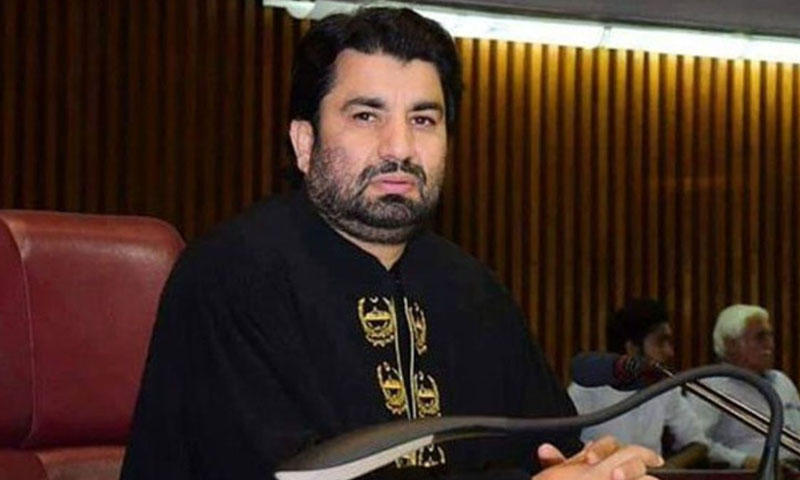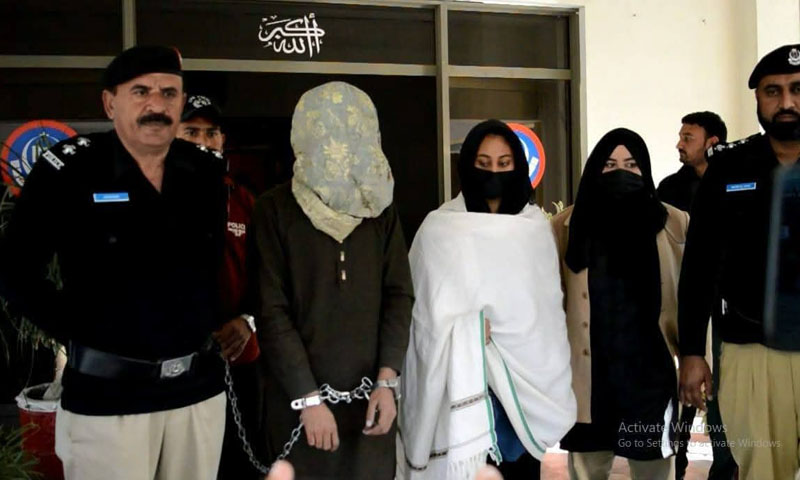- Web Desk
- Feb 09, 2026
Cash-strapped KIU to close sub-campuses, lay off staff and hike fee
-

- Tanveer Abbas Web Desk
- Jun 14, 2024

GILGIT: The Karakoram International University (KIU) Syndicate has decided to shut down its sub-campuses in Chilas, Ghizer, and Hunza due to financial constraints, jeopardising the future of 1,500 students and over 100 staff members.
According to KIU’s Public Relations Department, the decision was made at an emergency meeting on Thursday. KIU Vice-Chancellor Dr Attaullah Shah chaired the meeting and discussed the university’s financial crisis.
The urgent meeting expressed deep concern over the Gilgit-Baltistan (G-B) government’s failure to provide financial assistance and the federal government’s reluctance to increase funding through the Higher Education Commission (HEC).
The VC highlighted that due to the federal government’s decision to raise salaries, the university now faces an additional deficit of Rs200 million while KIU is already grappling with a Rs300 million shortfall. The KIU and the University of Baltistan (UoBS) are currently facing deficits of Rs500 million and Rs150 million respectively.
In the emergency meeting, Dr Shah highlighted the university’s dire financial situation, pointing out that while provincial governments across Pakistan were providing special grants to universities — such as Rs30 billion in Sindh, Rs15 billion in Khyber Pakhtunkhwa, Rs25 billion in Punjab, and Rs10 billion in Balochistan — the GB cabinet has completely refused to grant any financial aid to KIU.
This refusal puts the future of approximately 14,000 students at both universities at risk. The KIU vice-chancellor also emphasised that there has been no increase in university grants from HEC this fiscal year, which means the burden will inevitably fall on students and their families in the form of increased fees.
Last year, an attempt to raise fees resulted in significant student protests, leading to a blockade of the Karakoram Highway and a disruption of peace.
Also read: KIU faces Rs130 million annual financial loss
The GB government, including the chief minister, intervened to reverse the decision to hike fees. At that time, the G-B chief minister assured that the GB government would cover half of the deficit (Rs200 million), but only Rs50 million was provided as a loan, later converted into a grant. The promised Rs200 million has not been fulfilled.
This fiscal year, the university anticipated a Rs300-400 million grant from the provincial government. However, the finance bill does not mention such a grant, leading to further disappointment.
During a recent visit to KIU, GB Chief Secretary Abrar Mirza assured of full cooperation. However, the decisions made in the third meeting of the GB Education Reforms Steering Committee were discouraging, including the refusal to grant financial assistance and opposition to the transfer of the KIU examination board.
The KIU Syndicate decided to mitigate the Rs300 million deficit by increasing student fees by 25 per cent. Syndicate members appealed to parents and students to bear this additional burden to help the university overcome its financial challenges, as there has been no commitment of financial support from provincial or federal governments.
The university has no alternative but to increase fees.
The meeting also addressed the unfulfilled promise by the GB chief minister to transfer the board’s operations to KIU on an autonomous model, allowing the board to elect its chairman independently of KIU’s intervention. The decision to retract this promise has added to the financial strain on the university.
In light of the non-cooperation from federal and provincial governments, the KIU Syndicate also decided to lay off 72 board employees. Initially, the board’s operations were entrusted to KIU to ensure financial stability, but without consultation, the operations were transferred back to the federal board, exacerbating KIU’s financial challenges.
The meeting appealed to GB Chief Minister Haji Gulbar Khan, Chief Secretary Abrar Mirza, Force Commander Gilgit-Baltistan Maj-Gen Kashif Khalil, and other relevant authorities to safeguard the future of 15,000 students in the region.
Notably, in the absence of grants from federal and provincial governments, KIU faculty has decided to boycott classes after the Eid holidays.
The KIU vice-chancellor urged the faculty and staff to reconsider their decision in light of the region’s sensitive situation to prevent a scenario similar to that in Azad Jammu and Kashmir.




